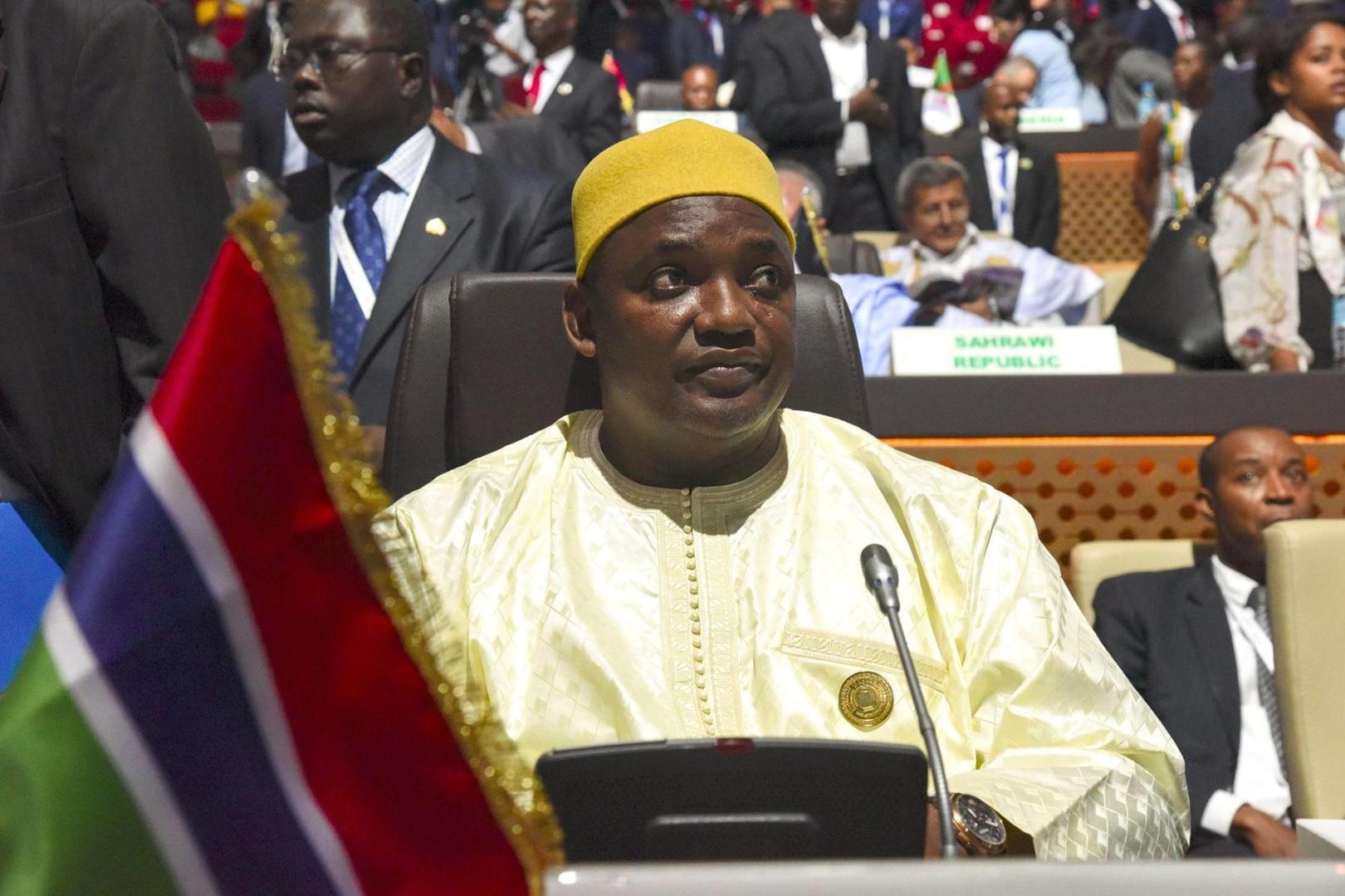Africa-Press – Gambia. Alhaji Mamadi Kurang, former secretary to the Janneh Commission, appeared before the National Assembly Select Committee on Wednesday to testify on matters relating to the sale and disposal of assets belonging to former President Yahya Jammeh.
During his testimony, Kurang remarked that Lead Counsel Amie Bensouda played a deeply involved role throughout the commission’s work, saying she was “everywhere and into everything.”
The comment was in response to a question from Counsel Dibba, who asked whether there had been any overlaps in the functions of the Commission’s three main arms: the legal and investigative team, the secretariat, and the commissioners’ unit.
Kurang responded, “I mean frankly, if there is to be any overlap, my only concern was that the lead counsel was everywhere, into everything.”
He added, “She is the lead counsel; for example, the things that I am handling are more of administrative and financial matters, and I think, for example, when it comes to dealing with the attorney general. The chairman was telling you yesterday that the lead counsel has a good relationship with the AG. Some of the things even when we can’t get them done, the lead counsel will get it done. So I didn’t think that some of those things were necessary,” he said.
Counsel Dibba asked Kurang to elaborate on the Commission’s internal structure and how the three key units functioned together. “What was the interrelation between these units?” The Counsel asked.
Kurang explained that he headed the Secretariat and reported directly to the Chairperson. The legal and investigative team, he said, included state attorneys, private legal professionals, investigators, and proofreaders, all under the supervision of the lead counsel.
“The lead counsel had state attorneys and also maybe non-state attorneys and investigators and maybe some proofreaders. These were under the lead counsel,” he said.
He explained that, as head of the Secretariat, he sat with the commissioners during their meetings, took notes on their deliberations and decisions, and served as the primary liaison between the commissioners, the Secretariat staff, and the legal counsel.
“Usually when the commissioners need something from the counsel, I get it for them because I sit with them, and then I would contact the counsel to do that,” he explained.
He added that the commissioners did not engage directly with members of the public. Therefore, any letters, suggestions, or communications addressed to the chairperson or the Commission were typically routed through him.
The witness further stated that while he served as the administrator for the commissioners, the counsel managed their own administrative tasks—except in areas expressly assigned to the secretary. These included maintaining files, serving summonses, keeping records, and related responsibilities.
“But they keep their own files, their own records and their own information,” He Said.
In response, Counsel Dibba reminded the witness that, as Secretary, he was officially appointed to the Commission and, regardless of the internal arrangements, the legal team formed an integral part of the Commission. Therefore, all external communications, in principle, should have been channeled through him.
“Yes, in an ideal situation, because there has to be a central point,” the witness replied.
He disclosed that he and the lead counsel held a briefing to clarify expectations and responsibilities, though they didn’t always see eye to eye. “Maybe we disagree, maybe we don’t agree,” the witness said.
Counsel Dibba pressed the witness to confirm whether or not there was an agreement between them.
“I think she was trying to direct my mind to what I need to do with information that relates to her and what relates to the commission. I think it would have been more appropriate for her to give me that information in the presence of the chairperson, but she chose to do it at that time,” The Witness said.
He further testified that he had made a general statement emphasizing that all information should be considered public or state property.
“But maybe she didn’t like that, so she told me that when we get in there, you are going to be mute. I don’t understand what she meant at that moment, but I simply responded that, well, maybe one day I will have the chance to talk,” he said.
Counsel Dibba asked the witness whether he had personally recruited any staff during his time at the Commission.
In response, the witness stated that he had brought in two assistants who were later retained under his supervision. He added that he covered their expenses and that they remained with him throughout his tenure, serving in the capacity of interns.
“During your time in the commission, were there any difficulties with supervising the internal administration of the commission?” the Counsel asked.
The witness stated that transitioning from the private sector posed certain challenges, noting that his preferred pace and approach to work often did not align with the operational culture of the government.
He explained that property valuers dealt directly with the lead counsel and that she would be best positioned to explain the valuation process. He added that he had no direct interaction with the land valuers.
The witness further testified that following the completion of the valuation exercise—and prior to the commencement of the sales process—the lead counsel informed him that the sales should be put on hold.
“She said because the order of the commission is going to be referred to the court,” he stated.
The witness further mentioned the existence of an email correspondence between himself and other parties concerning the matter, which he submitted and was subsequently admitted into evidence.
For More News And Analysis About Gambia Follow Africa-Press






